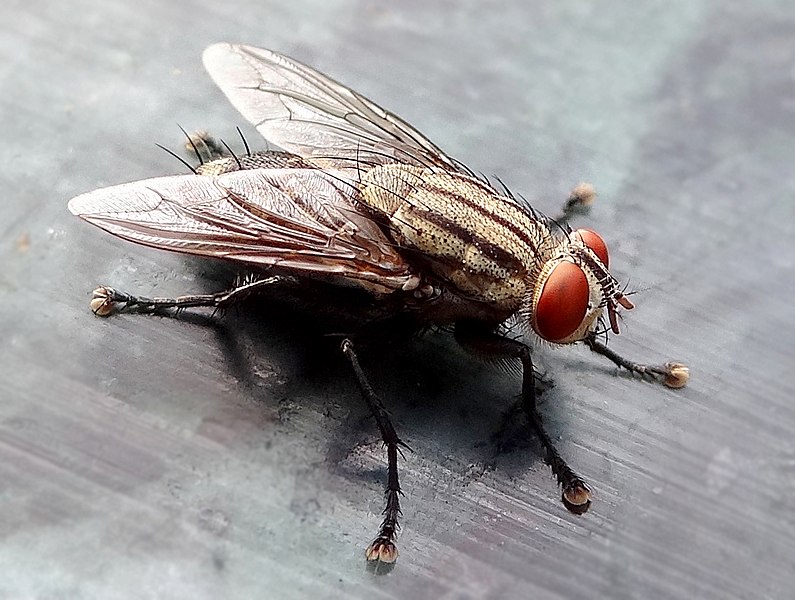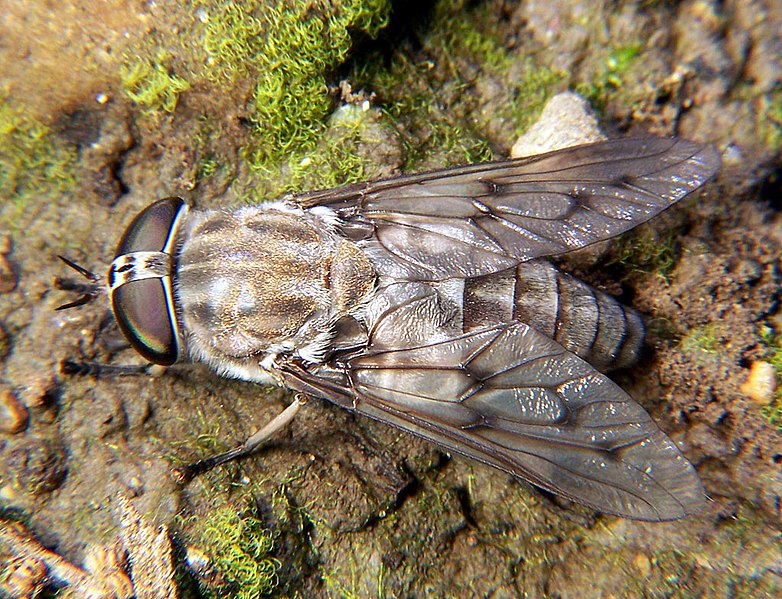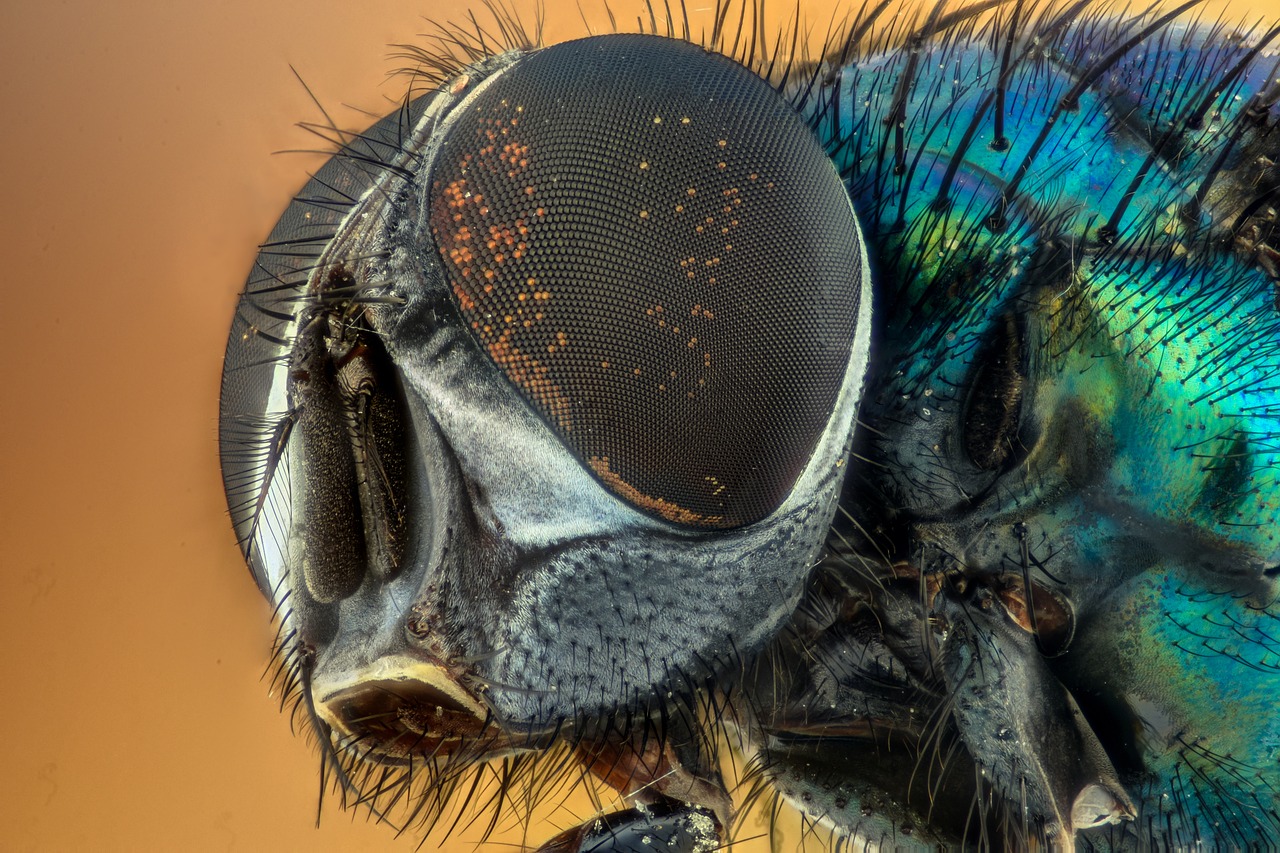Fly infestations are disgusting. We know that flies are unsanitary – they spread bacteria and diseases – but did you know that there are different types of flies that can infest your home? These flies live in different parts of your property and have different habits.
If you want to know more about fly infestations and how to deal with them, it’s important to understand the enemy. Here are the different types of flies that can infest your home.
Where do flies come from?
Even though there are a lot of different types of flies, they do have things they share in common. Flies typically live near organic materials, such as excrement, rotting products, and stagnant water. Your property has a lot of sources of these organic materials.
You may have excrement in the form of compost piles and pet feces. You may have rotting products in the form of garbage and overripe fruit. And you may have stagnant water in your birdbaths, drains, and old tires.
If you have these things in your property, you are basically asking flies to nest there.

What are the different types of flies that can infest your home?
There are thousands of different types of flies worldwide. But some are more common and more likely to get in contact with humans. Here are the most common ones that cause fly infestations near human settlements.
House fly
House flies are the most common type of fly that can infest your home. They can be very dangerous because they spread disease-causing bacteria. They can cause e. coli infections, salmonellosis, typhoid fever, and other diseases. This is because they live in the most unsanitary conditions and end up carrying and spreading a lot of bacteria around your home.
Outside your home, you will typically see them on excrement and garbage cans. Inside your home, you will find them on ceilings, floors, walls, and even on your indoor plants. Maintain the cleanliness of the outside and inside of your home to avoid attracting these pests.
Blow fly
Blow flies are not as common as house flies but they are just as notorious for spreading diseases. You can even argue that blow flies are more dangerous because of their habits. They are particularly attracted to dead animals and feces. It’s easy to imagine how they can spread disease-causing bacteria swiftly.
Blow flies typically nest outside your home. But during cold months, especially during fall and winter, they can nest inside your home. Make sure you keep your doors and windows closed, especially during the cold months where you are more vulnerable to blow fly infestations.
Cluster fly
Cluster flies are actually a type of blow fly. But they deserve their own spot because they have different habits than the blow flies from the previous entry. Cluster flies like to stay in clusters, hence the name. You will mostly see them clustered in a wall or some kind of cavity in your home, especially when the cold months are approaching.
During the warmer months in spring and summer, you will mostly see them outdoors. Unlike other blow flies that scavenge in dead animals and feces, cluster flies hunt for earthworms in the ground. They only settle indoors when the colder months are approaching, so you should be particularly wary about these pests in early fall to winter.
Drain fly
Drain flies are flies that are attracted to sewage and stagnant water. Outdoors, you will usually find them on septic tanks, sewage canals, and old water on birdbaths, fountains, and the like. Indoors, you will usually find them on the wet parts of your home, like your bathroom and kitchen. Give particular attention to drains and sinks, particularly those found in your bathroom and kitchen.
Drain flies are small flies and they really like drains and sinks. You will usually hear or see them buzzing inside the pipes of your drains and sinks. You can avoid drain flies if you fix all your drainage and piping problems, cover any holes in your piping system where they may enter, and avoid the accumulation of old water around your property.
Fruit fly
Fruit flies are very troublesome because they reproduce quickly. Females can produce 500 eggs that can hatch within 24 hours. And these can grow into adult fruit flies in just 7 days.
Fruit flies get their name from their characteristic liking for fruits. If you have ripe and overripe fruit outside your home, like when you have a garden or you have a fruit-bearing tree in your yard, fruit flies can easily become a problem. But take note that they are attracted to any kind of food too, so the inside of your home is not safe if you leave your food items in the open. And remember that animal feces and garbage are considered “food” for these pests too.
Horse fly
Do you live in a suburban or rural area near a body of water? You may be more vulnerable to horse fly infestations compared to other homeowners. This is because horse flies typically live in these areas, primarily because these areas usually have mammals they can infest. In fact, horse flies get their name for being notorious pests to horses and other mammals.
The only good news about horse flies is that they are not known to carry diseases. But they do bite to feed on blood. These bites are painful and can cause allergic reactions, so you are not safe around horse flies even though they don’t typically spread diseases.

How do you prevent fly infestations?
Indeed, there are a lot of different types of flies that can cause trouble on your property. But they are preventable. Here are some things you can do to prevent fly infestations.
- Maintain the general cleanliness of your property. Make sure your property has limited excrement, rotting products, and stagnant water that can attract flies.
- Keep all your doors, windows, and other possible passageways closed. Outdoor flies are bad, but indoor flies are worse because they are closer to you and your loved ones. Keep the flies out by closing all possible passageways.
- Make food and water inaccessible. Remember that pests won’t thrive without food and water. Keep your garbage cans sealed and your food and water products stored tightly in their right containers. Without easy access to food and water, flies won’t find your property attractive.

